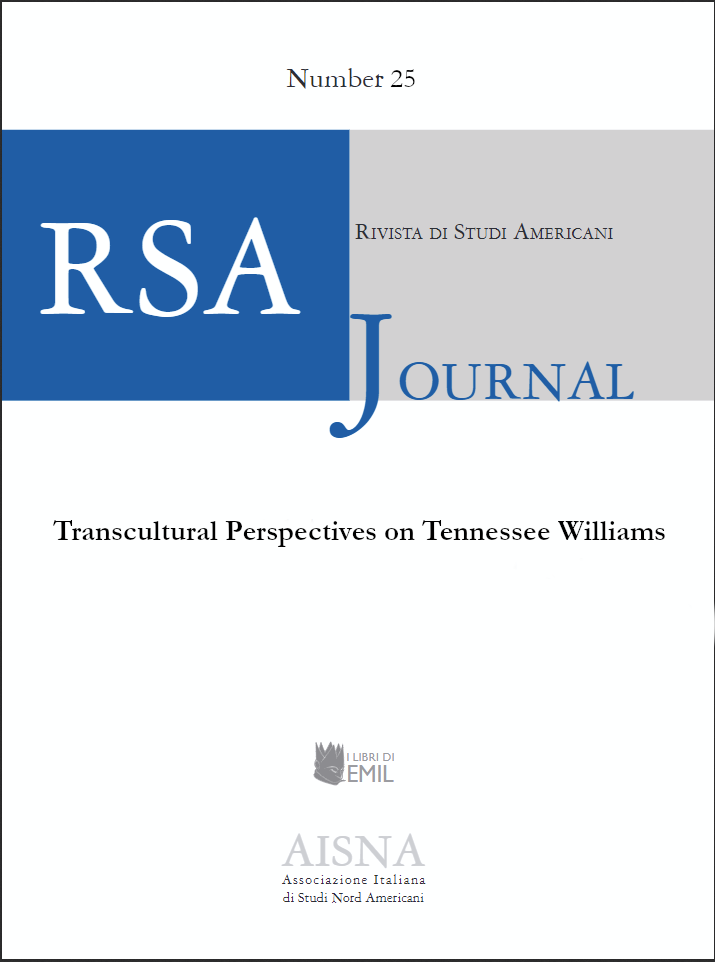“This Country, Where Many Things Are strange and Hard to Understand”
Booker T. Washington in Sicily
DOI:
https://doi.org/10.13135/1592-4467/8616Keywords:
traditionalism, religion, lack of morality, SicilyAbstract
The Man Farthest Down (1912), which narrates the 1910 visit to Europe of the prominent African-American leader Booker T. Washington, includes an important section on Sicily. The book focuses on social conditions in Europe and within this framework Sicily and the Sicilians firstly appear as a negative counter-image of the African Americans in the United States South. The island’s poverty results from the traditionalism of its population, its instrumental religion and lack of morality. Washington refuses, however, to racialize this negative image, and at a second level of his narrative he deploys Sicily as a case to deconstruct stereotyped representations, while comparisons between Sicily and the United States also provide covert critiques of social conditions, especially of African Americans, in the latter country. At a third level, Washington also frequently provides positive images of Sicilians. These images reflect his genuine understanding for Sicilians as a downtrodden group, and his appreciation of their human qualities. This layered description undoubtedly influences Washington’s analysis of the causes of poverty in Sicily. The traditionalism and alleged lack of morality of its population, the causes originally outlined, at a second level become consequences of the neglect and oppression of the Sicilians. He remains, however, surprisingly silent about possible remedies for Sicily’s problems, and ignores in fact movements for change that were effectively occurring on the island. We can assume, however, that his moderate programme in the United States, proposing uplift of the African American community through education and self-help, made it difficult to endorse radical changes in an island whose conditions he had constantly compared to the American South.
Downloads
Published
Issue
Section
License
RSAJournal applies a CC BY-NC-ND license to all its contributions. This license enables reusers to copy and distribute the material in any medium or format in unadapted form only, for noncommercial purposes only, and only so long as attribution is given to the creator. CC BY-NC-ND includes the following elements:
- BY: credit must be given to the creator.
- NC: Only noncommercial uses of the work are permitted.
- ND: No derivatives or adaptations of the work are permitted.
Authors who publish with this journal agree to the following terms:
- Authors retain the copyright and full publishing rights for their submissions to the journal.
- Authors grant the journal right of first publication with the work simultaneously licensed under a Creative Commons Attribution-NonCommercial-NoDerivatives 4.0 International License that allows others to share unedited work for non-commercial purposes with an acknowledgement of the work's authorship and initial publication in this journal.
- Authors are able to enter into separate, additional contractual arrangements for the non-exclusive distribution of the journal's published version of the work (e.g., post it to an institutional repository or publish it in a book), with an acknowledgement of its initial publication in this journal.




